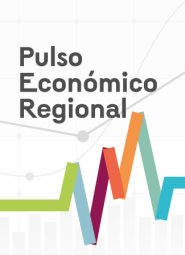Working Papers - The sensitivity of rice yields to weather variation in Colombia
The series Working Papers on Economics is published by the Office for Economic Studies at the Banco de la República (Central Bank of Colombia). It contributes to the dissemination and promotion of the work by researchers from the institution. This series is indexed at Research Papers in Economics (RePEc).
On multiple occasions, these works have been the result of collaborative work with individuals from other national or international institutions. The works published are provisional, and their authors are fully responsible for the opinions expressed in them, as well as for possible mistakes. The opinions expressed herein are those of the authors and do not necessarily reflect the views of Banco de la República or its Board of Directors.
We found that increases in precipitation and temperature had a positive effect on rice yields between 1987 and 2016. Each variable mitigates the effect of the other; in other words, the effect of precipitation depends on temperature and vice versa.
Abstract
We estimate the effects of annual temperature and precipitation on rice yields in Colombia from 1987 to 2016. The analysis explores the degree of variation in response to climate changes across the country’s diverse topography. Since there are two growing seasons in Colombia, the effects of the weather conditions for these two seasons are independently investigated. Additionally, rice yields are projected for two periods (2046-2065 and 2081-2100) based on the RCP 4.5, 6.5, and 8.0 of future climate scenarios. We found a positive effect of rainfall and temperature on yields, although one variable attenuates the effect of the other. The early season temperature and the later season precipitation were the main drivers of the yield. Effects were larger in departments with higher altitudes. Projections show that temperature and precipitation changes will cause rice yields to increase by 10% over 2046-2065, and 2081-2100, with respect to the reference period 1987-2016.





























































